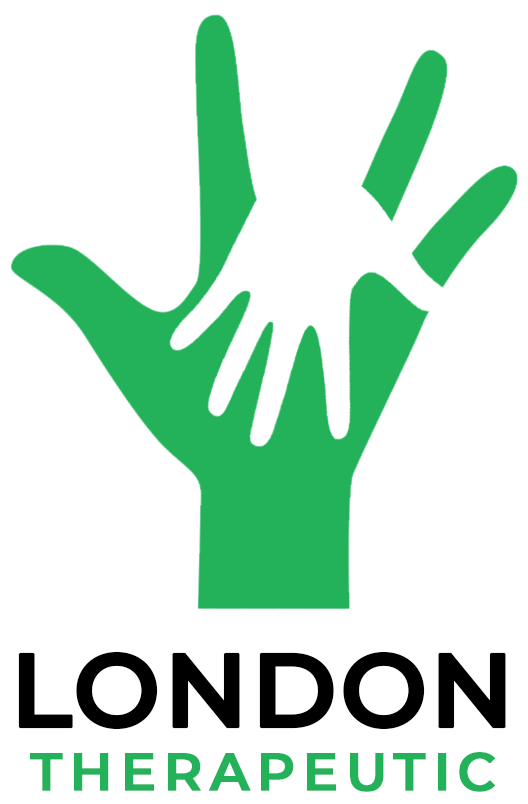Blog
Self-esteem
Self-esteem
Explains what self-esteem is, practical tips for improving your self-esteem, and advice on where you can go for support.
What is self-esteem?
Self-esteem is how we value and perceive ourselves. It’s based on our opinions and beliefs about ourselves, which can sometimes feel really difficult to change.
Your self-esteem can affect whether you:
- like and value yourself as a person
- are able to make decisions and assert yourself
- recognise your strengths and positives
- feel able to try new or difficult things
- show kindness towards yourself
- move past mistakes without blaming yourself unfairly
- take the time you need for yourself
- believe you matter and are good enough
- believe you deserve happiness.

Under 18? We have resources for you on wellbeing, self-esteem and looking after yourself
“For me, building self-esteem was [about] learning what self-esteem was in the first place. It was unlearning what I had learned about myself … I went back to self-school and learned all about me.”
What can cause low self-esteem?
The things that affect our self-esteem differ for everyone. Your self-esteem might change suddenly, or you might have had low self-esteem for a while – which might make it hard to recognise how you feel and make changes.
Difficult or stressful life experiences can often be a factor, such as:
- being bullied or abused
- experiencing prejudice, discrimination or stigma, including racism
- losing your job or difficulty finding employment
- problems at work or while studying
- ongoing stress
- physical health problems
- mental health problems
- relationship problems, separation or divorce
- worries about your appearance and body image
- problems with money or housing.
You might have had some of these experiences, and you might also have had difficulties that aren’t listed here. Or there might not be one particular cause.

Read more about racism and mental health
“My self esteem has almost disappeared…. I don’t know how to interact with people anymore and find it hard to enjoy the things that I like.”
Whatever has affected your self-esteem, it’s important to remember that you have the right to feel good about who you are. It might feel as if changing things will be difficult, but there are lots of things you can try to improve things bit by bit – see our tips to improve your self-esteem for some suggestions.
Is low self-esteem a mental health problem?
Having low self-esteem isn’t a mental health problem in itself, but they are closely linked. If lots of things affect your self-esteem for a long time, this might lead to mental health problems (for example depression or anxiety).
Some of the experiences of low self-esteem can be signs of a mental health problem, particularly if they last for a long time or affect your day-to-day life. For example:
- feeling hopeless or worthless
- blaming yourself unfairly
- hating yourself
- worrying about being unable to do things.
Having a mental health problem can also cause you to have low self-esteem, and it might feel harder to cope or take steps to improve your self-esteem.
See our information on mental health problems and seeking help for a mental health problem for more on these topics.
What’s it like to have low self-esteem?
Watch Nathan, Hannah, Helen, Rishi and Georgina talk about their experiences of low self-esteem, including how it feels, what’s helped them and how their friends and family can help.
How can I improve my self-esteem?
This page has some tips and suggestions for improving your self-esteem.
Some people find these ideas useful, but remember that different things work for different people at different times. Only try what you feel comfortable with, and try not to put too much pressure on yourself. If something isn’t working for you (or doesn’t feel possible just now), you can try something else, or come back to it another time.
Be kind to yourself
- Get to know yourself. Try to learn more about yourself – for example what makes you happy and what you value in life. Some people say they find it helpful to write in a journal.
- Let yourself have feelings. It’s important to remember that you’re a human being who can experience a wide range of emotions.
- Consider what self-esteem means to you. You might realise you’re basing your sense of self-worth on things that aren’t useful or helpful for you.
“Realising that I can change my ideas about what I base my self-esteem on has helped. I can’t do what I used to, but I can be the kind of person I want to be and now that seems more important to me.”
- Try to challenge unkind thoughts about yourself. You might automatically put yourself down. If you find yourself doing this, it can help to ask: “Would I talk to, or think about, a friend in this way?”
- Avoid comparing yourself to others. Try to remember that what other people choose to share about their lives isn’t the full picture and comparing ourselves isn’t realistic.
- Say positive things to yourself. It might feel really strange at first, but you’ll feel more comfortable the more you do it.
“I’ve come to realise that people get to choose what they present about themselves online … In reality, no one’s life is perfect and everyone has insecurities, and it’s important to remember this in order to not feel bad about yourself every time you see somebody post the ‘perfect’ selfie.”
Look after yourself
- Try to get enough sleep. Getting too little or too much sleep can have a big impact on how you feel. See our pages on coping with sleep problems for more information.
- Think about your diet. Eating regularly and keeping your blood sugar stable can make a difference to your mood and energy levels. See our pages on food and mood for more information.
- Try to do some physical activity. Exercise can be really helpful for your mental wellbeing and some people find it helps improve their self-esteem. See our pages on physical activity for more information.
- Spend time outside. Spending time in green space can help your wellbeing. See our pages on nature and mental health for more information.
- Try to avoid recreational drugs and alcohol. While you might want to use recreational drugs or alcohol to cope with difficult feelings about yourself, in the long run they can make you feel worse and can prevent you from dealing with underlying problems. See our pages on recreational drugs and alcohol for more information.
For more about looking after yourself, see our information on improving your wellbeing. You may also find some useful information on the One You website.
“Taking a few minutes for myself each day can really help me feel better; I like doing yoga and meditation.”
To notice the good things
- Celebrate your successes. No matter how small they may seem, take time to praise yourself and notice what you did well. It could also help to remember past successes.
- Accept compliments. You could make a note of them to look over when you’re feeling low or doubting yourself.
- Ask people what they like about you. It’s likely that they see you differently to how you see yourself.
“Focus on ‘small wins’ … Do the little things and use it as a springboard. Whatever you can do be proud of it!”
- Don’t put too much weight on negatives. If someone says something unhelpful or unkind, you might find you focus on that and ignore anything positive.
- Write a list of things you like about yourself. For example, you could include character traits, skills or experience, beliefs or causes that matter to you or things you enjoy doing. You could ask other people for suggestions too.
“I found it helped to review my CV. It made me realise what skills, experience etc I’ve picked up over the years… and that I’m actually a very valuable person. If the people I’m with don’t choose to believe that, that’s their problem, not mine.”
Build a support network
- Talk to someone. For example you can contact Samaritans 24 hours a day, 365 days a year on 116 123 or jo@samaritans.org to talk about anything that is upsetting you.
- Try peer support. Making connections with people who have similar or shared experiences can be really helpful. For example, online communities like Mind’s Side by Side can be a good source of support. See our pages on peer support and online mental health for more information.
- Contact your local Mind. Mind’s Infoline can also help you explore options for support.
Talking and arts therapies
- Talking therapies can sometimes be helpful for building your self-esteem, or finding ways to cope with experiences that have affected how you feel about yourself. You may also find arts therapies helpful for your self-esteem.See our pages on talking therapies and counselling, and arts and creative therapies, for more information.“I have problems feeling valued if I am not valued by others. Being loved by others certainly does not hinder your self esteem. Might be more healthy if you are able to love yourself internally though. You need a reservoir of self-love to fall back on.”
Learn to be assertive
- Practise saying no. It could help to pause, take a breath and consider how you feel before agreeing to do something you don’t want to.
- Give it time. Being assertive can feel difficult if you’re not used to it, but it can feel liberating – and it gets easier the more you do it.
- Don’t take too much on. It’s OK to set boundaries around how much you do for other people. Over-stretching yourself to please others can drain your energy and affect your wellbeing.
Courses to help with self-esteem
Some organisations offer courses or workshops to help you build your self-esteem or learn assertiveness, including:
- Local Mind branches
- The Richmond Fellowship
- Recovery colleges – see the Mind Recovery Net website for more information.
The Reading Well books scheme includes books which can help your self-esteem – Reading Well books are available in many local libraries. The organisation Mind Tools also provide further tips on assertiveness on their website.
“The thing that has helped me the most has been learning to ignore other people’s opinions and expectations. I get to decide what’s important for me and my life and where to focus my energy/time.”
Set your self a challenge
- Do things you enjoy. You could take up a hobby, learn something new, do a creative activity or simply take the time to read a book or go for a walk.
- Try volunteering. You might decide to volunteer your time for something you feel passionate about. For more information on volunteering, see the Do-it Trust website.
- Set small goals, such as trying a recipe, learning the days of the week in a new language or simply looking for information on something you’d like to do.
“Try to do one thing that pushes you slightly … doesn’t matter if big or small … just something that makes you feel like you’re making progress. Don’t beat yourself up. Just allow yourself time to gradually build up your self-belief again.”
- Do something for yourself every day. Try to get into the habit of doing something to be kind to yourself or look after yourself.
- Let yourself have fun. Remember you don’t have to be perfect at something to enjoy doing it.
Read Kate’s blog on how joining a women’s boxing club has increased her confidence and helped her to fight prejudice.
“It’s not for everyone but martial arts has really boosted my self esteem, I was awful when I started … but I’ve been doing it for a year now, done a few gradings and competitions and even though I have miles to go until I am advanced I still feel like I have really accomplished something.”
Find support for connected issues
- f you’ve experienced other issues that have affected your self-esteem, such as abuse or bullying, it could be helpful to also explore the help that’s available for these issues. If you have been abused in childhood, the National Association for People Abused in Childhood is there to support you. Our pages of useful contacts for abuse and PTSD list many more organisations that could a help.For more options for getting support, see our information on seeking help for a mental health problem and talking treatments.“I had always just presumed [my dislike of myself] was a part of who I was … It was only when I realised that my self-esteem didn’t have to be negative that I started challenging my own ideas about myself.”
Couch to 5K: A boost for my mind and body
Watch Louise’s video on how she took on the Couch to 5k challenge and how it’s boosted her mind and body.
Useful contacts
Other organisations
Do IT
doit.life
Lists UK volunteering opportunities.
Mind Recovery Net
mindrecoverynet.org.uk
Publishes information on recovery colleges, including a searchable list of providers.
Mind Tools
mindtools.com
Tips and articles on personal effectiveness, management and leadership.
The National Association for People Abused in Childhood (NAPAC)
0808 801 0331
support@napac.org.uk
napac.org.uk
Supports adult survivors of any form of childhood abuse. Offers a helpline, email support and local services.
One You
nhs.uk/oneyou
Tips and resources to help improve your health and wellbeing.
Reading Well
reading-well.org.uk
A series of self-help books to help you understand and manage your health and wellbeing.
The Richmond Fellowship
richmondfellowship.org.uk
Mental health charity that champions recovery and social inclusion, including a number of regional services.
Samaritans
116 123 (freephone)
jo@samaritans.org
Freepost SAMARITANS LETTERS
samaritans.org
Samaritans are open 24/7 for anyone who needs to talk. You can visit some Samaritans branches in person. Samaritans also have a Welsh Language Line on 0808 164 0123 (7pm–11pm every day).
Time to Change
time-to-change.org.uk (England)
timetochangewales.org.uk (Wales)
National campaign to end stigma and discrimination against people with mental health problems in England and Wales. The campaign for England ended in 2021, but its resources are still available online.
